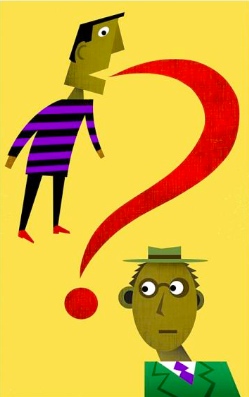 I’ve been talking a lot recently with a woman who’s from Europe. She lives in this country, so her English is excellent. Still, since English isn’t her native language, there are times when there are tiny gaps in communication between us — enough that it’s prompted me to think about how people use words to communicate.
I’ve been talking a lot recently with a woman who’s from Europe. She lives in this country, so her English is excellent. Still, since English isn’t her native language, there are times when there are tiny gaps in communication between us — enough that it’s prompted me to think about how people use words to communicate.
There are times when I might use a particular word or phrase and she will interpret it as something entirely different from what I intended to convey. It’s not that she’s misunderstanding the words themselves. It’s simply that English words can mean so many different things in different contexts.
I’ve noticed from talking to her that some things we say — that we understand to mean certain things — can mean entirely different things if you interpret the words literally and don’t have decades of experience in learning the cultural context.
Even simple things can be confusing. She was going through something potentially difficult this past week, so I sent her an email to encourage her and say that I’d be “thinking about you” as she went through the issue. She had to ask — just to be sure — whether “thinking about you” means something different from “thinking of you.”
The whole experience has given me a new appreciation for how difficult English is to learn for someone who doesn’t grow up speaking it.
As I’ve pondered how language works between us — how it sometimes facilitates communication and sometimes impedes it — I’ve thought about why miscommunication of all kinds between humans is so common and why it seems to be so hard to improve.
The limitations of language mean that perfect intent can’t be conveyed, because words are imperfect symbols of abstract thoughts and feelings (which are really subconscious). So some meaning is lost when I choose my words and when you interpret my words back into the native “abstract code” of your “inner brain.” (When we move communication online — with no cues that come from tone of voice and facial expression — the “signal loss” can be even greater.)
We also have to factor in the unconscious bias that both the sender and receiver of a message have — bias about certain words and about the meanings themselves — which change perceptions of the words ever so slightly.
Another important variable is ego. When I communicate to you, I’m not just communicating my overt message. I’m also (usually unconsciously) trying to project an image of who I am. I’m trying to get you to see me the way I want to be seen, so I unconsciously do it in ways that will be consistent with what I want you to think of me. In the same way, the listener’s ego gets in the way. The listener can hear what she wants to hear (or doesn’t want to hear), depending on what the emotional need of the moment is.
 Through it all, the sender of a message is likely to believe he’s been completely clear. The receiver is likely to assume she’s correctly interpreted intent. With all of this “signal loss,” what percentage of real original intent makes it through?
Through it all, the sender of a message is likely to believe he’s been completely clear. The receiver is likely to assume she’s correctly interpreted intent. With all of this “signal loss,” what percentage of real original intent makes it through?
Why are we usually so unaware of the gap between sender intent and receiver understanding?
The more I think about it, I’m amazed that human communication works as well as it does, but improving it substantially seems like a pipe dream.
One of the saddest things about our limited ability to communicate is that humans crave real communication with others, in multiple ways. To really understand someone else and to be understood creates a feeling of intimacy unlike almost anything else in the world. For many of us, not having that is akin to feeling starved — and it leads to deep depression.
We humans might be terrible at communication. There may be tremendous “signal loss” when we try. But we keep doing it, not just because it’s pragmatically useful, but because connecting with others defines who we are. If there’s someone you can make a real connection with, that’s worth more than most people realize — and it’s worth fighting past the stumbling blocks.
That’s because we need real connection with another human for emotional and psychological survival — just as much as we need food and water for physical survival.
 Everything sounded fair at the time, so why’d I end up paying for it all?
Everything sounded fair at the time, so why’d I end up paying for it all? FRIDAY FUNNIES
FRIDAY FUNNIES Miss. church turns back clock by refusing to marry black couple
Miss. church turns back clock by refusing to marry black couple